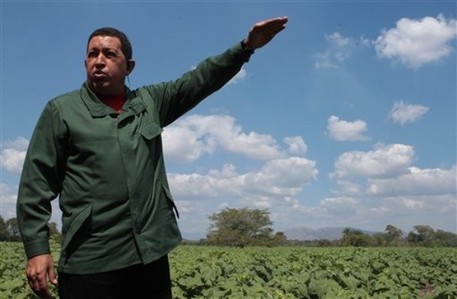
By David D. Sussman
Venezuelan President Hugo Chávez is a fan of some books, and an opponent of others. In April of last year he made a very public presentation of Eduardo Galleanoâ??s Open Veins of Latin America: Five Centuries of the Pillage of a Continent, gifting it to President Barack Obama at the Summit of the Americas. On the other hand, the annual CIA World Factbook is now a book that draws the Venezuelan leaderâ??s ire.
Chávez criticized the latest addition of the World Factbook, focusing on its statement that his government â??purports to alleviate social ills while at the same time attacking globalization and undermining regional stability." In his response he declared that indeed, his goal is to weaken the hegemonic influence of the United States in the region. Chávez considers the World Factbookâ??s comment a â??declaration of war," once again drawing attention to the high level of tension in the region.
As an aside, the CIA World Factbook is published annually and provides detailed information about the people, economy and political situation of each country. Originally, it arose out of the National Intelligence Survey, a publication intended to systematize intelligence information following World War II. The Factbook was a summary published in classified form in 1962 and publicly in 1975. Interestingly, as evidence of the Cold Warâ??s influence on the Factbook, until around 1990 there was a specific section among the country descriptions that focused on the status of the Communist party.
Speaking of books, the Venezuelan administration restricts imports of some foreign texts. It also established a series of government-sponsored bookstores that are known for their sale of left-leaning and revolutionary texts, and for their low prices. Upon entering one such store I found shelves covering Che Guevara and others dedicated to socialist principles. Alternative viewpoints did not exist â?? the bookstores appear to be yet another means of controlling information available to the general public.
Like this topic? Read more at FPA's Venezuela Blog.
(AP Photo)



